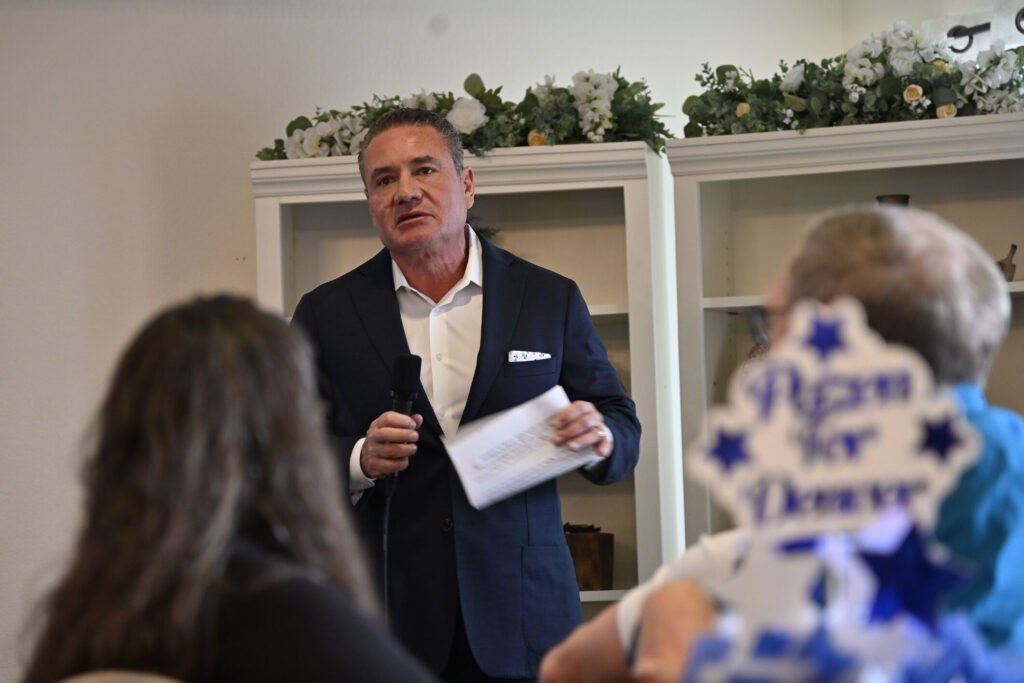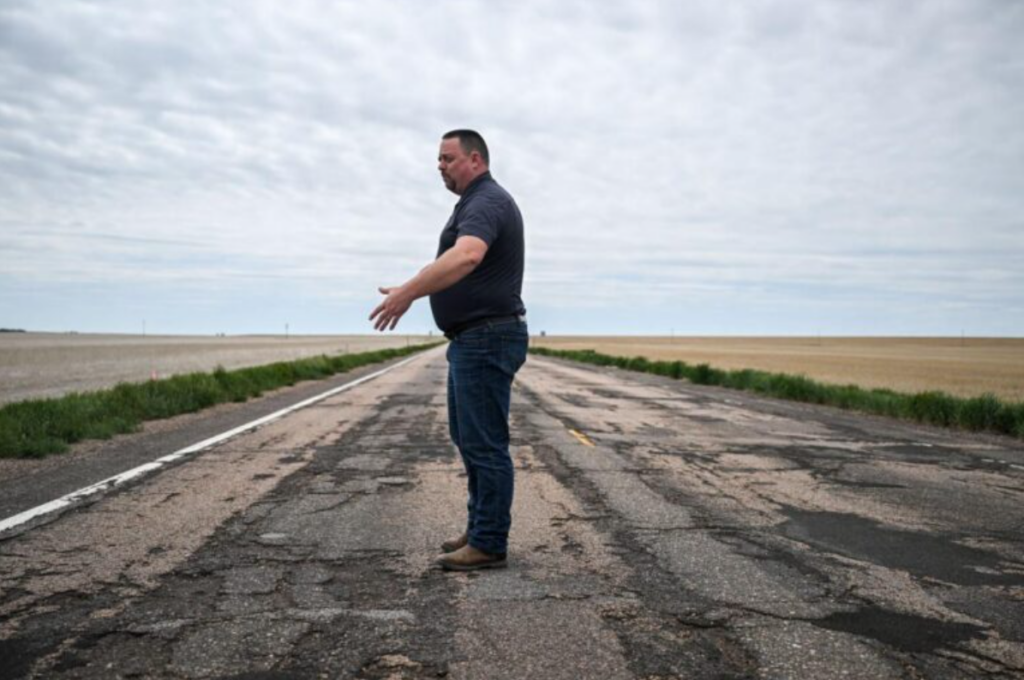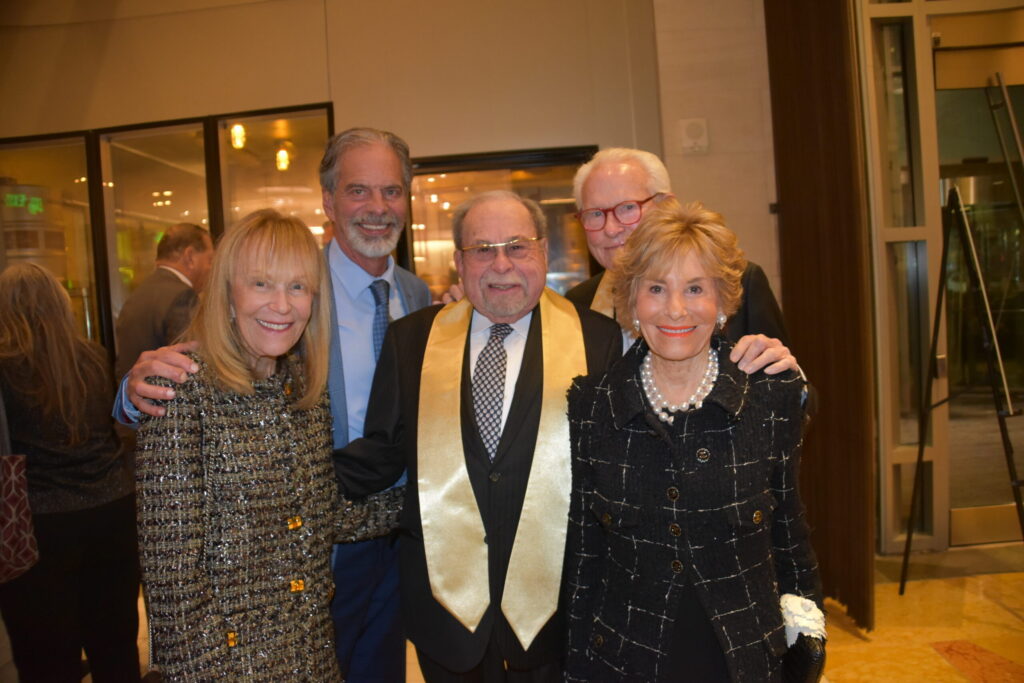Rural Reckoning | From support to disapproval, rural sentiment shifts against Gov. Jared Polis
STEAMBOAT SPRINGS • Once upon a time, Marsha Daughenbaugh supported Gov. Jared Polis from her working cattle and hay ranch some 8 miles outside of Steamboat.
“Let me preface this,” Daughenbaugh said, while making day-before preparations for a Fourth of July gathering for family and friends, before pausing and adding, “I voted for Governor Polis the first go around, but I’ve become very disappointed in what he has become and what his approach to agriculture has been.”
“I feel like he has a much deeper, more urban interest in his heart,” Daughenbaugh said.
“I was born and raised here,” said the well-spoken 72-year-old rancher. “My folks worked very, very hard to put this ranch together. I believe deeply in agriculture. We all have to do what we can to make it viable.”
Daughenbaugh’s list of complaints against the governor is lengthy, and she is not alone in rural Colorado in expressing frustrations with the policies coming out of the state Capitol.
Critics said the governor, who is entering his final 18 months in office, has favored urban centers, neglected the state’s rural regions and passed laws that directly — and negatively affected — their way of life.
The governor maintained that he he has signed policies that lifted rural Colorado, while his allies pointed to housing and mental health policies, among other laws, that they said have greatly benefited agricultural communities.
Former USDA secretary: Polis has accomplished a lot for rural Colorado
Former U.S. Department of Agriculture Secretary Tom Vilsack said Polis’ negative image among the agriculture community may be tied to the wolf reintroduction program and a few other decisions.
Still, he stressed that the governor, along with Kate Greenberg, Colorado’s agriculture secretary, has accomplished a great deal, especially for small and medium-sized farms, though these gains may not seem immediately apparent.
Vilsak, a Democrat, served as the U.S. Secretary of Agriculture between 2009-2017 under President Barack Obama, and then between 2021-2025 for President Joe Biden.
Vilsack noted that 88% of farm families must rely on off-farm secondary incomes to make a living. He praised Polis and Greenberg for their initiatives, including $800 million for climate-smart agriculture subsidies, pushing for more independent processing facilities, and providing small farmers with more opportunities.
As for the criticisms directed at Polis, Vilsack said positive work is not always recognized immediately.
“It takes a while for that kind of information to penetrate into the countryside,” he said.
Vilsack said decisions made in the 1970s altered the country’s agricultural system, shifting from a supply management system, where farmers thrived due to the controlled supply of resources.
“The Nixon administration made the decision that we in the country needed calories, and the world needed calories, and we needed food as an instrument as we dealt with the Cold War and the Soviet Union,” he said. “We needed food to be able to use as a way of developing relationships. So, we told farmers to go out and buy and produce. Just produce.”
The result, Vilsack said, is that major farmers thrived, then took over the industry, while small and medium-sized operations struggled. Vilsack argued that decisions made in the 1970s was the direct reason 544,000 farms nationwide between 1981 and 2022 failed.
While serving under Biden, Vilsak said he appreciated that Polis and Greenberg worked to change some of that through community food access programs, workforce development, loan and grant programs and tax credits.
Beyond the ranch
Still, Daughenbaugh not only thinks the governor and his cabinet are doing an inadequate job when it comes to agriculture — she also believes the Polis administration is, to a degree, hemorrhaging the Western Slope and other rural outposts throughout the state by pushing specific positions.
Daughenbaugh pointed to several issues she said are emblematic of the problems with Polis, including his proclamation of “MeatOut Day” in March 2021 to encourage residents to consider “plants-based” and vegetarian diet options in place of consuming meat.
“That was a heartbreaker,” Daughenbaugh said.
But her last straw, she said, was the wolf reintroduction program, which Colorado voters approved in 2020.
“His love of the wolf, pushing for the reintroduction and so quickly, just not listening to the communities,” Daughenbaugh said. “It has not been fair to the people out in rural communities, nor has it been fair to the wolves. I think they just really need to listen to communities.”
Beyond ranching, Daughenbaugh also blamed the governor for the housing situation in Steamboat and other outlying areas.
“He has chosen not to address the housing need across the state, and we feel very impacted in resort areas,” she said. “Yes, we want to keep our economy going with recreation, but there has to be more than just recreation. There isn’t housing for hospital workers in the medical, education and firefighting fields. They just go right down the line.”
Polis defended his rural record, saying that, from the start, he has been open to listening to the needs of residents beyond the Front Range. While it may not seem like it, Polis said his approach has always been to represent all of Colorado, urban and rural alike.
He emphasized his work on affordable housing, universal preschool, property taxes, and healthcare that, he said, not only helped the Front Range but also rural Colorado.
“We are always focused on what is needed statewide,” said Polis, who noted that both the state commissioner of agriculture and the natural resources director are from the Western Slope. “We are there all the time, and we’re focused on real issues that affect them on the ground. Whether it’s a small conference in Mesa County, whether it’s our ranchers, or whether it’s gas and oil, we strive to work with all of them.”
When it comes to housing, Polis told Colorado Politics that he has hunkered down to bring more affordable units online by pushing for a statewide approach to the crisis, and not just signing bills that benefit any particular region.
“Housing is a bigger issue for Colorado, for sure,” he said. “It’s a problem in the suburbs and the cities. But guess what? It’s a big issue in the mountains and high country without a question. Without question, it’s a problem in Western Colorado where the prices have gone up. We have been very focused on that in the last three years.”
Polis said despite critics’ beliefs, he has fought for affordable housing, noting that nothing passed through the Democratic-led legislature the first year he tried but that, over the last two years, he has signed new laws, ranging from property-tax relief to changes in regulations that allow for the construction of affordable housing.
As for the wolves, Polis said the voters willed their reintroduction: “Well, some people don’t like wolves, but I think they understand that I’m doing the best I can with the hand I was dealt, and I trust the professionals at CPW to implement the will of the voters.”
‘More red tape, more hurdles, and more regulation now’
Residents living in Routt and Moffat counties have echoed Daughenbaugh’s sentiments.
“I don’t think the legislature, in general, has been very good to rural areas,” said Chris Nichols, the mayor of Craig.
Nichols, who has served as the city’s leader since 2024, said the Colorado government is straining many rural areas with enhanced zoning regulations, as well as “gutting” the Colorado Department of Local Affairs, the agency tasked with strengthening local communities via training, research, technical assistance, and funding.
In particular, the mayor pointed to specific dollars that are no longer available for rural communities.
Nichols contended that the severance tax imposed on non-renewable natural resources removed from the earth, as well as the energy and mineral impact assistance fund, will not be available as grants in 2026. Both were significantly cut in 2025 to help balance the state’s $1.2 billion budget crisis, he said.
Nichols, who has lived in the Moffat County seat since 1984, is a former city councilmember and served as the fire chief in the community volunteer fire department.
He had worked part-time at McDonald’s while he was attending the University of West Virginia, climbed the corporate ladder and became the owner and operator of four franchises when he retired in 2017. He was glad not to have owned a small business during the COVID-19 pandemic, he said.
“I was fortunate to be able to retire when I was able to,” Nichols said. “I think it was enabled through my hard work and the company working with me.”
While Nichols said he believes the “American Dream” remains possible, he said it is becoming increasingly difficult to attain, particularly for many small business owners in Colorado’s rural locales.
Although he stopped short of blaming Polis directly, Nichols expressed disappointment with several policies enacted by the state’s Democratic-led legislature.
“There’s more red tape, more hurdles, and more regulation now,” Nichols said.
Rural Colorado in ‘trauma response’
The perception that Colorado is becoming more like California has been gaining traction among many long-term residents, including who live in Craig and other rural communities along the Western Slope.
Tammy Villard is embedded in that camp.
Villard was born in Craig but moved around with her family during her childhood before returning to the Moffat County seat in high school, where she stayed for good.
She is married with three children. The owner of Moffat Mercantile, a local gift shop, she has witnessed transformations over the years in the area.
“We’re in ag community, and state in large part,” Villard said. “Our governor is not energy friendly, and so our community is in a bit of a trauma response right now because we’re facing the shutdown of our power plant. We have coal mines in the area that are facing closure. That’s a lot of industry in this valley that’s looking at going and not being here to help sustain the community. What replaces that?”
Villard also pointed to “MeatOut Day,” as well as the 10-cent tax imposed in 2024 on carryout single-use plastic and paper bags as examples of Polis’ positions that, to her, seems misplaced and lost in translation to specific segments of Colorado’s population.
“It’s just stuff where you’re like, ‘Why is this a battle?’” Villard said. “Our governor is one of the most rural- and ag-unfriendly governors in the United States. Now, tell me who he’s trying to emulate more than California Gov. Gavin Newsom? It would be nice if our governor were a little friendlier to Coloradans, instead of Californians.”
Craig is no California
Craig is not only far removed from California geographically, but also culturally.
Nestled in northwestern Colorado, along the Yampa River with a population of just over 9,000 people, Craig fully embodies a working-class rural community fueled by agriculture, electricity and power.
“We’re a tight-knit community — sort of insulated from the cultural shifts of the metropolitan cities,” said J.B. Chapman, a long-time Craig resident, who owns Chapman’s Automotive Repair. “It’s definitely a plus to be able to live where we do and do what we do.”
The area is home to the Craig Generating Station and the Colowyo and Trapper coal mines, all of which are expected to close within the next five years.
Tri-State Generation and Transmission Association owns both the Craig Generating Station and Colowyo Coal and is a part-owner of Traper Mine.
The shutdown of the three will not only significantly affect area employment but also tax revenue. It remains to be seen if new energy policies from the Trump administration would rescue the plants and mines — the closure plans — key components of Polis’ goal to make Colorado 100% renewable energy in a few decades — have long been in motion.
Nichols said he realized that change became inevitable in his community when the state’s decarbonization plan was finalized. It had prompted him to want to do more to help residents navigate through the change.
“We’re in the middle of a transition phase,” Nichols said. “As much as anything else, I wanted to feel part of contributing to that transition.”
One positive development residents in Moffat and Routt counties see coming, which Polis prioritized, is the Mountain Passenger Rail.
It will provide year-round service between Denver and Granby, with plans to eventually connect Craig and Steamboat Springs.
According to the Colorado Department of Transportation, the Colorado Mountain Rail Project is on track to be completed in 2026.
Residents said this service will not only help bolster tourism and visitors to the area, but that it will, more importantly, reduce traffic congestion on U.S. Highway 40, which has led to several fatalities.
Detractors and supporters
While Polis has his share of detractors in Moffat and Routt counties, he also has some ardent supporters.
He had an approval rating as high as 61%, according to a 2023 Morning Consult survey.
He is considered by many to be one of the most popular governors in the U.S.
To many, he is likeable and personable. And he knows how to use pressure to push his agenda through.
Still, many believe the Colorado governor is out of touch with the culture, values and approach to daily life omnipresent in outposts along the Western Slope.
“He just never really seemed to connect or quite get it out here,” said Ken Brenner, a Yampa Valley native, who is on the Colorado Water Congress and served on the Steamboat Springs City Council for several years. “The folks here don’t expect you to agree with them all the time, but they want to feel like you heard them.”
Added Villard: “There are better ways to do some of the things he wants to do and get the same result without hurting so many people along the way.”
Editor’s Note: This is the third set of a series examining Colorado’s urban-rural relationship. New stories in the series will be published every Friday through Aug. 8. Follow all the stories in the series here. Thelma Grimes contributed to this report.














